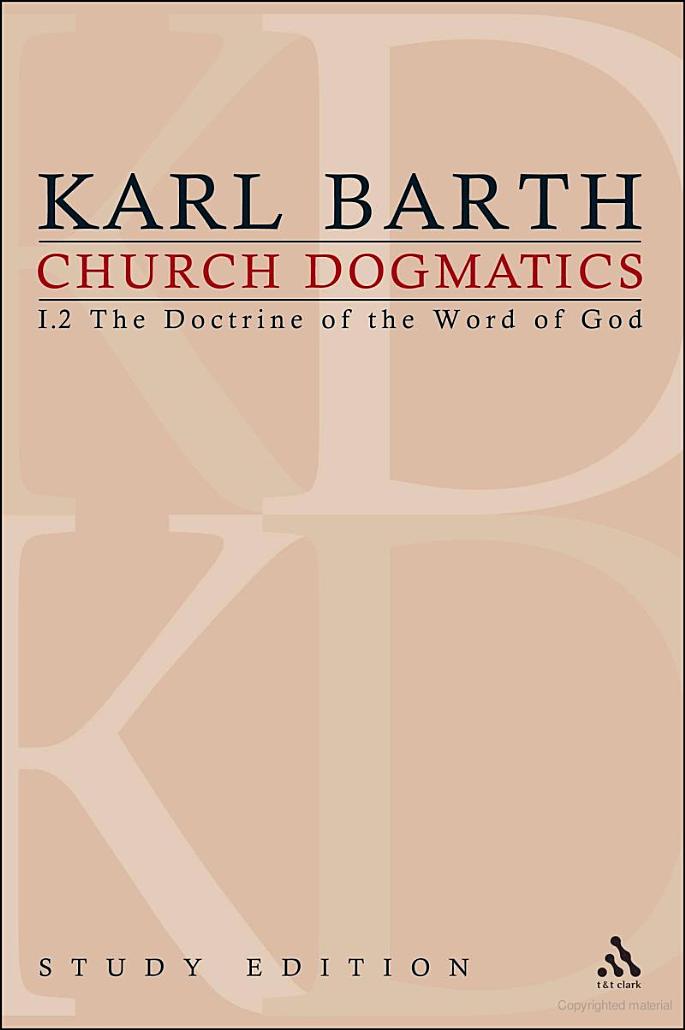
Karl Barth's Church Dogmatics I.2, §20.1 (pages 538-585) on "The Authority of the Word of God" has an extended discussion about the authority of the Holy Scriptures in contrast to the authority of the Church. (You may read it entirety on Google Books here.) The fundamental question is whether the Church gives authority to the scripture and defines what is and is not the Holy Scriptures, or is it the other way around that the Church has authority because it is derived from the Holy Scriptures?
Karl Barth says that the Holy Scriptures are the oldest witnesses to the revelation of God. Barth points to Jesus Christ as the objective revelation of God earlier in this volume I.2 of his Church Dogmatics (CD). Barth says that Jesus is very human and very God, and even if other religions teach similar truths as Christianity they are still not the revelation of God (even if they are religions of grace) because they do not have the very man and very God person of Jesus Christ.
So Holy Scripture is not defined as the revelation of God but a witness to the revelation of God in the God-man Jesus Christ, and being a witness to revelation, they are not the fullness of revelation because they are not the person of Jesus incarnate.
If the revelation of God is the Holy Scriptures alone, and the Holy Scriptures not witness to Jesus but are in themselves the revelation of God, then the Church predates scriptures because the Church was from the beginning. The Church is Apostolic and started by Christ, yet the earliest original autographs of the New Testament we currently possess were not written until about twenty years after the ascension. And seeing the Holy Scriptures as revelation in themselves would show that they are dependent on the Church for birthing them, and then the Church would have authority to exist when there were not scriptures. Sounds very Roman Catholic?
Barth's answer is to see the Holy Scriptures as containing the total witness to the apostolic revelation given by Jesus. Since Jesus is the Word of God, then the Word of God is prior to the Church and also what gives authority to the Church by bringing the Church into existence, and giving it itself (the New Testament) in it, and by having the Holy Scriptures entrusted into the Church, there is a reciprocal authority given to both the Scriptures and the Church, yet keeping the priority of authority in the Holy Scriptures, and immediately followed by the Authority of the Scriptures.
This question of Authority builds upon Barth's earlier discussion of θεόπνευστος (theopneustos) in 2 Tim 3:16 (cf. 2 Peter 1:20f.) in CD I.2, where Barth effectively demonstrates that a private individual or select few Church officers do not determine what is in the Canon of scripture, because its the unified acceptance of Scripture by the Church that sets the boundaries of the Scriptures. So if an individual scholar says the Gospel of Thomas is the true gospel, or a Reformer says that the book of James is outside of scripture, we may reject their opinions because their opinions do no reflect the Church's consensus. There is still a human element that gave birth to the Scriptures, but that humanness does not change that the revelation of God has come to us in that form.
I mention the inspiration of Scriptures here because Barth's methodology is an alternate to both the priority of the Catholic Church, and to the golden plates doctrine of Inerrancy in some Protestant Churches. It's also a very effective criticism of those people who treat the New Testament documents like any other human writing, and Barth also attacks those who are constantly searching for the documents behind the form of Scriptures currently held within the 66 books of our Canon.
Barth doesn't exclude the possibility that a lost letter in the Corinthian Correspondence by Paul may appear suddenly, or the lost Epistle to the Laodiceans may unearth itself. So Barth concludes that if the Church collectively receives such a lost document it may suddenly have authority, but without the Church's entire adoption it will be like all the annoying scholars today who praise the Nag Hammadi codex with all its Gnostic books include the Gospel of Judas. Here's a quote on this point:
And for all we know--and certain recent discoveries out to prepare us for any eventuality--there may be things awaiting us in the sands of Egypt, in the light of which not even the Roman Church will, perhaps, one day--
Karl Barth folks! (applause).
Related: authority, CD I/2, Church Dogmatics, Church Dogmatics I/2, egypt, holy scriptures, Karl Barth, new testament, paul, scriptures



March 1st, 2022 - 01:31
Does Barth ever engage any of the non-canonical second temple lit in CD, e.g., 1Enoch, etc?
March 1st, 2022 - 01:38
Does Barth ever engage any non-canonical second temple lit in CD, e.g., 1Enoch, etc?